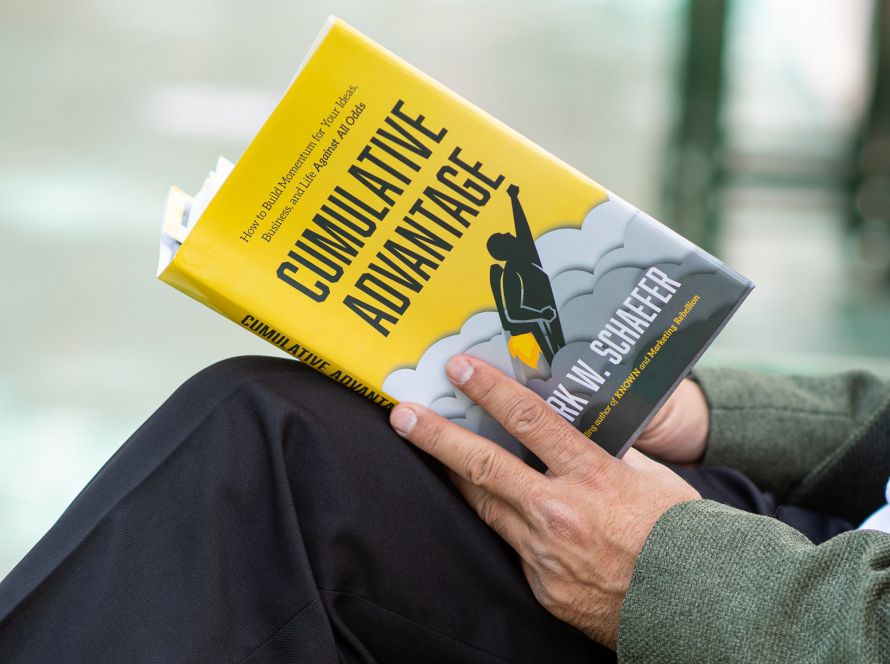Come into the mesmerizing space of literary fiction, where words weave intricate tales of emotion, depth, and imagination. Explore the boundless possibilities and transcendent power of storytelling as we unravel the marvelous stories that lie within every page.
Literary fiction takes readers on a magnetic trip beyond the surface. Delving into the complexities of the human experience. It immerses us in richly crafted characters and their poignant struggles, offering profound insights into the human condition. From profound tragedies and heart-wrenching love stories to thought-provoking philosophical musings, these works of art challenge our perceptions, ignite our imaginations and leave an indelible mark on our souls.
In the intoxicating world of literary fiction, authors craft stories that resonate deeply, eliciting a vast array of emotions within us. Through their masterful use of language and storytelling techniques, they create a tapestry of words that ignite our senses and transport us to other worlds.
Read as we cover the literary space, where we look into the magic of literary fiction, explore its themes and motifs, and celebrate the profound impact it has on our lives.
The elements of literary fiction
Literary fiction is a genre that transcends the boundaries of traditional storytelling, offering readers a richer and more immersive experience. At the heart of this genre lies a unique set of elements that distinguish it from other forms of fiction.
One of the defining characteristics of literary fiction is its focus on character development. Rather than relying solely on plot-driven narratives, literary authors delve deep into the psyche of their protagonists, exploring their innermost thoughts, emotions, and motivations. This depth of characterization allows readers to connect with the characters on a profound level, empathizing with their struggles and triumphing in their successes.
Another essential element of literary fiction is the use of language. Authors in this genre are masters of their craft, wielding words with precision and artistry to create a rich tapestry of imagery, symbolism, and poetic resonance. The language used in literary fiction is often lyrical, evocative, and layered with meaning, inviting readers to savor each word and ponder the deeper implications.
The themes explored in literary fiction are often complex and thought-provoking, tackling universal human experiences such as love, loss, identity, and the human condition. These themes are woven seamlessly throughout the narrative, challenging readers to reflect on their own lives and the world around them. Literary fiction encourages readers to engage in a deeper level of introspection, exploring the nuances of the human experience.
Ultimately, the elements of literary fiction work in harmony to create a captivating and transformative reading experience. By delving into rich character development, utilizing masterful language, and exploring profound themes, literary authors transport readers to worlds that resonate deeply within the human psyche.
Understanding the emotional depth in literary fiction
At the heart of literary fiction lies a profound emotional depth that resonates with readers on a visceral level. Unlike genre fiction, which often prioritizes plot and action, literary fiction is primarily concerned with the exploration of the human experience, delving into the complexities of emotions and the intricacies of the human condition.
One of the key ways literary fiction achieves this emotional depth is through its focus on character development. Authors in this genre invest significant time and effort in crafting multidimensional characters, imbuing them with a range of emotions, vulnerabilities, and internal conflicts. Readers are invited to empathize with these characters, to feel their joy, their pain, and their struggles as their own.
The language used in literary fiction also plays a crucial role in eliciting emotional responses from readers. Literary authors are masters of their craft, using evocative and poetic language to paint vivid emotional landscapes. Through the skillful use of metaphor, imagery, and symbolism, they capture the nuances of human emotions, from the euphoric highs of love to the crushing lows of grief and despair.
Moreover, the themes explored in literary fiction often touch on the most profound and universal human experiences, such as the search for identity, the complexities of relationships, the impact of trauma, and the existential questions that plague the human condition. By jumping into these themes, literary fiction challenges readers to confront emotions and personal experiences, fostering a deeper level of self-reflection and emotional engagement.
The emotional depth of literary fiction is not limited to the subject matter alone; it also extends to the reading experience itself. As readers immerse themselves in these richly crafted narratives, they are transported to a realm where the boundaries between the fictional and the real become blurred. The emotional resonance of literary fiction lingers long after the last page is turned, leaving an indelible mark on the reader’s psyche.

Probing the pieces and motifs in literary fiction
Literary fiction is renowned for its ability to explore an array of themes and motifs that focus on the complexities of the human experience. Beyond the surface-level plot and action, these works of art grapple with the deeper questions and challenges that shape our lives.
One of the most prevalent themes in literary fiction is the exploration of identity and the human condition. Authors in this genre often delve into the intricacies of personal identity, examining how factors such as gender, race, class, and societal expectations shape an individual’s sense of self. They also explore the universal struggles and existential questions that all humans face, from the search for meaning and purpose to the confrontation with mortality.
Another common theme in literary fiction is the exploration of relationships and the human connections that bind us together. From the complexities of familial bonds to the nuances of romantic love, literary authors meticulously dissect the emotional and psychological dynamics that underlie these connections. They delve into the joys, the challenges, and the transformative power of human relationships, offering readers a deeper understanding of the human experience.
Closely related to the theme of relationships is the exploration of trauma and its impact on the human psyche. Literary fiction often grapples with the devastating effects of personal, social, and historical traumas, examining how they shape an individual’s worldview and alter the course of their lives. These narratives serve as a powerful lens through which readers can gain empathy and insight into the resilience and healing process of those who have endured trauma.
In addition to these overarching themes, literary fiction is also renowned for its use of rich symbolism and motifs that add depth and layers of meaning to the narrative. From the recurring imagery of nature and its cycles to the exploration of the human body and its metaphorical significance, these symbolic elements invite readers to engage in a deeper level of interpretation and contemplation.

The role of imagination in literary fiction
At the heart of literary fiction lies the power of imagination, a force that transcends the boundaries of the tangible world and transports readers to realms of endless possibilities. The role of imagination in this genre is not merely a decorative element but a fundamental aspect that elevates the reading experience to a transformative and revelatory level.
Literary authors are masters of the craft, wielding their imagination as a tool to create richly textured worlds that resonate with readers on a profound level. Through their imaginative prowess, they can craft characters that feel not just believable but also deeply human, imbued with complexity and depth that mirrors our own lived experiences. These characters become more than just fictional entities; they become mirrors that reflect the multifaceted nature of the human condition.
Moreover, the imagination of literary authors extends beyond the realm of character development, permeating the very fabric of the narrative itself. They employ imaginative techniques such as non-linear storytelling, stream-of-consciousness, and the blending of reality with the fantastical to challenge the reader’s preconceptions and expand the boundaries of what is possible in fiction. These innovative approaches to storytelling invite readers to engage in a more active and participatory reading experience, where their imagination is ignited and encouraged to explore the limitless possibilities that lie within the text.
The role of imagination in literary fiction is not limited to the narrative itself. But also extends to the thematic and symbolic layers that underpin the work. Literary authors often employ imaginative metaphors, symbols, and motifs to explore complex ideas and emotions, inviting readers to dive deeper into the subtext and uncover the hidden meanings that lie beneath the surface. This interplay between the tangible and the abstract, the real and the imagined, is what gives literary fiction its profound and lasting impact on the reader’s psyche.
Ultimately, the role of imagination in literary fiction is not merely a decorative element but a fundamental aspect that elevates the reading experience to a transformative and revelatory level. By harnessing the power of imagination, literary authors create works of art that challenge, inspire, and captivate readers, leaving an indelible mark on their understanding of the human experience.
Notable authors in the genre of literary fiction
The genre of literary fiction is a rich and diverse tapestry, woven with the masterful storytelling of countless authors who have left an indelible mark on the literary landscape. From the timeless classics to the contemporary voices, these literary giants have captivated readers with their ability to craft narratives that transcend the boundaries of traditional fiction.
One of the most revered names in the world of literary fiction is William Faulkner, the renowned American author whose works are renowned for their experimental and innovative approach to storytelling. Faulkner’s novels, such as “The Sound and the Fury” and “As I Lay Dying,” are celebrated for their intricate character development, non-linear narratives, and profound exploration of the human condition. His unique literary style, which often employed stream-of-consciousness and shifting perspectives, has influenced generations of writers and continues to inspire readers to this day.
Another literary heavyweight is the iconic Russian author, Fyodor Dostoevsky, whose works are renowned for their psychological depth and philosophical complexity. Novels like “Crime and Punishment” and “The Brothers Karamazov” delve into the darkest recesses of the human psyche, exploring themes of morality, guilt, and the search for redemption. Dostoevsky’s masterful use of language and his ability to create richly layered characters have cemented his place as one of the most influential figures in the literary canon.
In the realm of contemporary literary fiction, the acclaimed American author Toni Morrison stands out as a true literary luminary. Her works, such as “Beloved” and “Song of Solomon,” are celebrated for their poetic prose, profound exploration of race and identity, and their unwavering commitment to the representation of the African American experience. Morrison’s literary genius has earned her numerous accolades, including the Nobel Prize in Literature, and her impact on the literary landscape is undeniable.
These are just a few of the many notable authors who have made significant contributions to the genre of literary fiction. From the timeless classics to the cutting-edge contemporary voices, these literary giants have pushed the boundaries of storytelling and challenged readers to engage with the complexities of the human experience.
Popular literary fiction books and their impact
The genre of literary fiction has long been celebrated for its ability to captivate readers with its rich storytelling, complex characters, and profound exploration of the human condition. Over the years, numerous literary fiction books have risen to the forefront, leaving an indelible mark on the literary landscape and the hearts of readers around the world.
One such iconic work is “To Kill a Mockingbird” by Harper Lee, a novel that has become a staple in classrooms and book clubs alike. Through the eyes of the young protagonist, Scout, Lee masterfully navigates the complexities of race, justice, and the moral awakening of a community. The novel’s enduring impact lies in its ability to confront the harsh realities of social injustice while simultaneously celebrating the resilience and empathy of the human spirit.
Another literary masterpiece that has resonated with readers is “One Hundred Years of Solitude” by Gabriel García Márquez. This sweeping, multi-generational saga blends elements of magical realism with a profound exploration of the human experience, tracing the rise and fall of the Buendía family. Márquez’s lyrical prose and his ability to weave together the fantastical and the mundane have earned the novel a place among the most influential works of literary fiction.
In the realm of contemporary literary fiction, Khaled Hosseini’s “The Kite Runner” has captivated readers with its poignant exploration of friendship, guilt, and the enduring legacy of the past. Set against the backdrop of Afghanistan’s tumultuous history, the novel follows the journey of Amir as he grapples with the consequences of his childhood actions and seeks redemption. Hosseini’s masterful storytelling and his ability to evoke powerful emotions have made “The Kite Runner” a beloved and impactful literary work.
These are just a few examples of the many literary fiction books that have left an indelible mark on readers and the literary landscape. From timeless classics to modern-day masterpieces, these works of art have the power to transport us, challenge our perceptions, and leave us with a deeper understanding of the human experience.
How to appreciate and analyze literary fiction
Appreciating and analyzing literary fiction is an art form in itself, requiring readers to engage with the text on a deeper level and to cultivate a nuanced understanding of the author’s craft and the thematic layers that underpin the narrative.
One of the key elements in appreciating literary fiction is to approach the reading experience with an open and inquisitive mindset. Rather than simply consuming the story, readers should actively engage with the text, seeking to uncover the layers of meaning and symbolism that lie beneath the surface. This involves paying close attention to the author’s use of language, the development of the characters, and the way the narrative unfolds.
Another important aspect of appreciating literary fiction is to recognize the importance of context. Understanding the historical, cultural, and social factors that influenced the author’s perspective can provide valuable insights into the themes and motifs explored in the work. This contextual understanding can deepen the reader’s engagement with the text and foster a more meaningful connection with the characters and their experiences.
When it comes to analyzing literary fiction, readers should be prepared to delve into the complexities of the narrative, examining the various elements that contribute to the overall impact of the work. This may involve exploring the symbolic significance of the setting, the role of imagery and metaphor, and how the author’s use of language shapes the reader’s perception of the characters and their experiences.
Additionally, readers should be willing to engage in critical thinking and challenge their assumptions and preconceptions. Literary fiction often presents complex moral and ethical dilemmas, inviting readers to grapple with the ambiguities and nuances of the human experience. By embracing this level of critical analysis, readers can gain a deeper understanding of the themes and ideas that underpin the narrative.
The advantages of reading literary fiction
Reading literary fiction offers a wealth of benefits that extend far beyond the mere enjoyment of a good story. This genre of literature has the power to transform the way we perceive the world, expand our empathy, and deepen our understanding of the human experience.
One of the primary benefits of reading literary fiction is its ability to foster empathy and compassion. By immersing readers in the lives and perspectives of richly drawn characters, literary fiction encourages us to step outside of our own experiences and develop a deeper understanding of the struggles, joys, and complexities that shape the human condition. This empathetic engagement can lead to a greater appreciation for the diversity of human experiences and a more nuanced understanding of the world around us.
In addition to cultivating empathy, reading literary fiction can also serve as a powerful tool for personal growth and self-reflection. The profound themes and complex characters found in this genre often challenge readers to confront their own biases, beliefs, and assumptions. By grappling with the moral and ethical dilemmas presented in the narrative, readers can gain valuable insights into their values and how they navigate the complexities of life.
Furthermore, the rich and evocative language used in literary fiction can have a profound impact on the reader’s cognitive and creative faculties. The masterful use of imagery, metaphor, and symbolism can stimulate the imagination and inspire readers to engage in deeper levels of critical thinking and analysis. This, in turn, can lead to the development of enhanced problem-solving skills, improved communication abilities, and a greater appreciation for the power of language.
Beyond the personal benefits, reading literary fiction can also have a broader societal impact. By exploring themes of social justice, identity, and the human condition, these works of art can serve as a catalyst for important conversations and a means of fostering greater understanding and empathy within communities. The enduring legacy of literary fiction lies in its ability to transcend the boundaries of the page and to shape the way we perceive and engage with the world around us.
The lasting power of literary fiction
As we have explored the intoxicating world of literary fiction, it becomes evident that this genre of literature possesses an enduring power that transcends the boundaries of mere entertainment. Through its masterful storytelling, its profound exploration of the human experience, and its ability to captivate and transform readers, literary fiction has cemented its place as a cornerstone of the literary landscape.
The elements that define literary fiction – the depth of character development, the artistry of language, and the complexity of the themes – work in harmony to create a reading experience that is both intellectually stimulating and emotionally resonant. By immersing themselves in these richly crafted narratives, readers are invited to engage in a level of introspection and self-reflection that can lead to a deeper understanding of themselves and the world around them.
The themes explored in literary fiction, from the search for identity to the complexities of human relationships, have the power to transcend the boundaries of the page and to resonate with readers on a universal level. These works of art challenge us to confront our own biases, to empathize with the experiences of others, and to grapple with the moral and ethical dilemmas that shape the human condition.
The enduring power of literary fiction lies in its ability to leave an indelible mark on the reader’s psyche, lingering long after the final page has been turned. These stories become a part of our collective consciousness, shaping the way we perceive the world and influencing the way we engage with the complexities of the human experience.
As we continue to immerse ourselves in the intoxicating world of literary fiction, we are reminded of the transformative power of storytelling and the profound impact that these works of art can have on our lives. Whether we are captivated by the richly drawn characters, the evocative language, or the profound themes, literary fiction has the power to transport us, challenge us, and leave us forever changed.















































































































